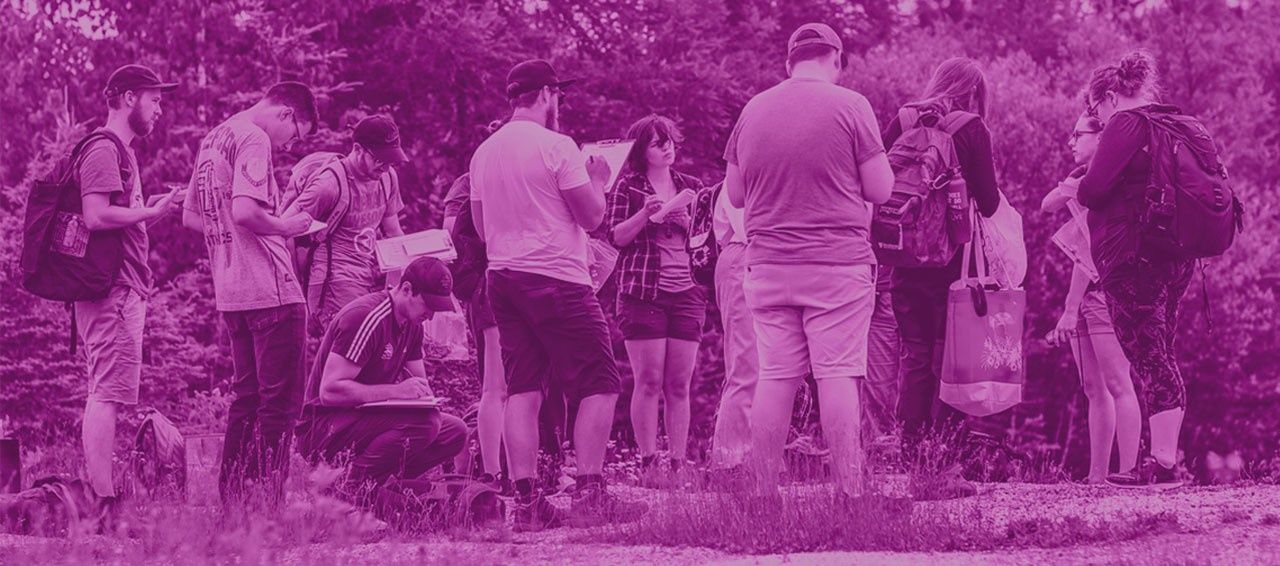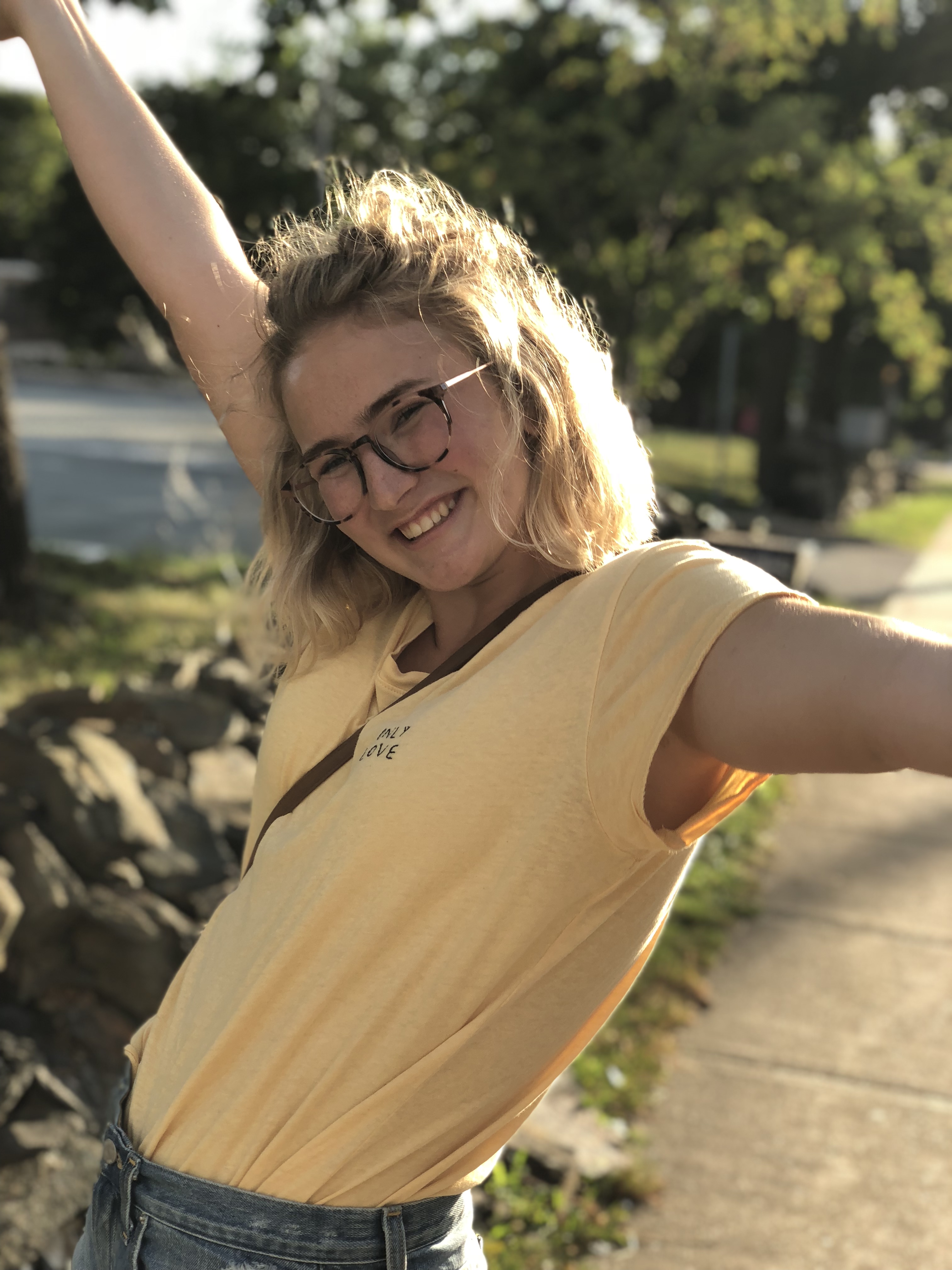Tia Olynyk
*This interview was conducted during the winter 2020 term
My name is Tia Olynyk.Ěý I am in my third year studying Economics and Spanish (with intended honours).Ěý I am from Victoria, British Columbia.
What led you to choose your major(s)?
I studied Spanish in high school and instantly fell in love with it. I told myself that, whatever my major ended up being, I would at least come out of my undergrad with a second language. I began my second year with Spanish as my minor, but it ended up being less arduous to switch to a double major when I decided to pursue an honours thesis. I am also doing a certificate in Intercultural Communication.
In my first year at Dal, my grandmother told me to take a class in Economics and I was scared to turn her down. So that’s how that happened. My high school didn’t have many elective options or Advanced Placement courses, so I actually had no idea what Economics was before I arrived at my first class. I remember there being an AP course in Statistics when I was in Grade 12, but I didn’t even think about taking it. Now I think Stats is a really fun time.
At the end of first year, I knew I would pursue Economics. You don’t get as excited as I do about two graphs lining up if you’re not a total Econ nerd.
Are you studying what you thought you would be when you were a grade 12 student? If not, what influenced the change?
Hard no. I took AP English in Grade 12, fully prepared to study English and International Development, so here’s to say you might end up pursuing something completely different from what you previously imagined. I knew I would study social sciences in university but didn’t know what I was interested in specifically. I was disappointed when International Development and English didn’t work out, but I realized that I was more interested in the factors that contributed to a country’s development than the theory behind it. I liked learning about things that I could apply in practice. Studying Economics and Spanish, while taking electives in Religious Studies and Political Science, gave me a well-rounded view of countries’ economic, cultural and political spheres and the best practices for creating positive change.
What has been your favorite class and why?
For my elective courses I focused on religious studies. I took RELS 1002 - Judaism, Christianity and Islam, then RELS 2013 - Buddhism, and finally RELS 3113 - The Mahabharata. Each was amazing and really forced me to branch out of my academic comfort zone. For Spanish, SPAN 2070 - Central America and Mexico: From Revolution to Drug Wars with John Kirk was great, especially since Canadian high school classes don’t focus much on Central and Latin American history. For Economics, I really enjoyed Shelley Phipps’ ECON 3315 - Labour Economics. I took the course because I thought the information was important, but it was actually fascinating and Shelley was a total girl boss.
Can you describe a memorable experiential learning experience?
I am in my third year, but intend to take a fifth year in order to study abroad and do an honours thesis, two experiences that I am very excited about.
My most valuable experiential learning opportunity so far has definitely been my placement at the Halifax Refugee Clinic. At the beginning of my third year, I knew that I wanted to pursue either a Masters in Migration and Forced Refugee Studies or a Masters in Social Entrepreneurship after my undergrad. When I came across the practicum program, and especially the opportunity to work with the Clinic, I was ecstatic. The opportunity lined up perfectly with my course of study and gave me the chance to see real policy and social inclusion practices at work in the community. In addition, being able to work with the Clinic and contribute what little I can to individuals and families seeking asylum has been unbelievably rewarding.
What are you involved in outside the classroom?
I am currently a member of ±«Óătv’s varsity rowing team and head coach of the Learn-to-Row program. In my first year, I did not participate in the First Year Interest Interest Groups (FIGs), but for all you newcomers––check them out (I wish I had)!
During my first year of studies, I worked as a Junior Assistant at a Project Management and Consulting firm. The job definitely improved my confidence. My boss let me take the lead on projects that I found interesting and threw me into the deep end. At seventeen, I had no idea what I was doing, but knowing my boss was confident in my abilities made me more self-assured and helped me stay calm in stressful situations.
A common misconception about university is that school will take up all your time and you will be too stressed if you partake in extracurriculars or volunteer/work experiences. My advice is to pick something you are interested in and go for it. Meeting new people (even upper-years that can show you the ropes), creating a sense of community in Halifax and relaxing by partaking in an activity that you love can really add to your university experience.
What’s been one of your favorite hands-on learning experiences?
The Halifax Refugee Clinic, for sure.
What are some strategies you employ to balance your studies with other parts of your life?
During the fall, rowing is a real de-stresser for me. Plus, SUNSHINE! In the Winter semester, I love to read, chat with my family, and listen to podcasts on long walks. Balancing work and play is a huge aspect of managing stress too. You are expected to work hard at university, but not at the expense of your wellbeing. Trips out of town with the ±«Óătv Outdoor Society, Thursday night karaoke at Oasis, running the trails in Point Pleasant Park, and late night Killam study sessions with pals have all been part of my Dal/Halifax experience!
Advice for Students:
Is there anything you wish you’d known as a grade 12 student?
If you are passionate about something, be confident that you will find a way to make a career out of it. There is so much pressure placed on students at 17-18 years old to make huge life decisions. It’s okay not to have a 25-year plan set in place at the end of grade 12. Just be sure to take advantage of opportunities, apply yourself, and explore your options!
If you can put yourself in the shoes of these students, coming closer to the end of their high school career, what is one piece of advice you would like to pass on to them?
The most important thing to focus on coming into university is to pursue what interests you. Don’t choose your degree based on what your friends are studying or what you thought would be your major when you were younger. I also came to ±«Óătv without knowing anyone and survived just fine. So if you feel something is right for you, even if it’s daunting, go for it!

 Ěý
Ěý